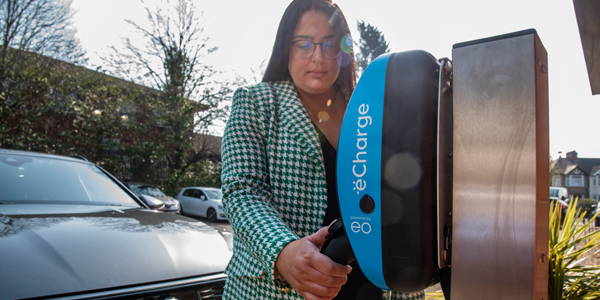Schools to lead EV revolution with 50,000 new chargers

eEnergy (AIM:EAAS), the digital energy services company, has announced plans to install at least 50,000 electric vehicle (EV) chargers by 2030 as part of its commitment to create the UK’s largest public sector charging network.
eEnergy’s new service – “eCharge” – removes upfront costs and can be paired with clean energy procurement and energy saving solutions, including LED lighting upgrades, to enable schools, colleges, hospitals, and councils to protect themselves against rising energy bills.
eEnergy has signed an exclusive agreement with EO Charging, the UK’s leading provider of EV charging solutions and one of Europe’s fastest-growing companies. This initial exclusive partnership with EO will deliver mass EV charging for the UK education sector.

There are approximately 32,000 schools, colleges, and universities, and more than 600,000 teachers in the UK. When combined with the 225,000 staff and 2.66 million students currently at UK higher education institutions, the education sector represents a significant underserved market to help accelerate the UK’s transition to low carbon transport.
The first 200 installations with EO will be completed in April 2022 and at least 2,000 chargers will be installed within the first 12 months. eEnergy expects to sign additional partnership agreements this year as it accelerates its EV rollout plans.
At a time of unprecedented energy costs, installing standard EV chargers is not currently a viable option for many schools and public sector organisations. By offering longer-term, fully serviced performance contracts, eCharge customers can install EV charging without upfront investment. The service will also offer new revenue opportunities, with schools and other organisations able to monetise their EV charging facilities by making them available to local communities or providing charging in place of parking fees.

The latest figures from the Department for Transport show that while there are now more than 250,000 home charging devices in the UK, only 2,038 devices have been installed through the government’s on-street charging scheme since it was established in 2017, meaning those without off-street parking are being left behind. eEnergy’s workplace charging rollout is actively targeting education and other public sectors with the greatest need, ensuring staff, customers, students, and patients can all access the most reliable EV charging services.
Harvey Sinclair, CEO, eEnergy said: “The government has rightly set ambitious net zero targets, and electric vehicles will play a fundamental role. However, ensuring everyone has access to reliable charging, especially for those who cannot plug in at home, poses considerable challenges.
“Like many employers, schools face a growing demand for EV chargers just as energy costs reach record highs. Our ambitious rollout will make life easier for teachers and other drivers by offering an affordable and accessible alternative.
“By pairing workplace chargers with energy-saving technologies and clean energy procurement, everything from lighting to commuting can be powered using 100% fossil-free energy, cutting energy costs, and creating new revenue opportunities for the public sector.”

Charlie Jardine, Founder and CEO, EO Charging said: “Our partnership with eEnergy ensures critical net zero infrastructure can be widely adopted by the public sector as well as businesses, making EVs accessible to more people throughout the UK. Together we have built a compelling solution for those who are looking to install EV chargers as part of their broader net zero strategy.”
eEnergy expects to install up to 20 chargers per school or workplace, making a significant contribution towards the government’s 2030 target of 145,000 extra charge points in the UK, to coincide with the ban on new Internal Combustion Engine vehicles.
eEnergy customer Mark Greatrex, CEO at Bellevue Place Education Trust, said: “We are looking forward to working with eEnergy on the rollout of EV charging points across our schools. We want to support and encourage our employees and parents in the transition to EVs and believe the move away from petrol and diesel vehicles is crucial as we look to create a greener future for our pupils.”





